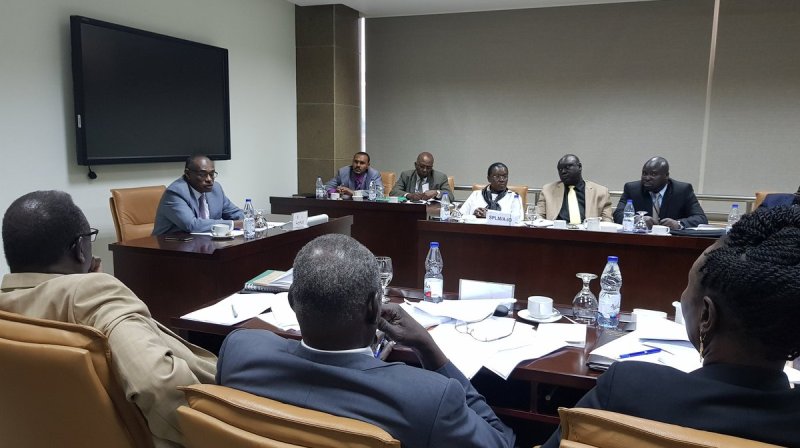Opposition PDM rejects final document for peace in South Sudan

August 30, 2018 (JUBA) – The People’s Democratic Movement (PDM) which is a member of the South Sudan Opposition Alliance (SSOA) rejected the draft revitalized peace agreement and recalled its demand for three autonomous regions in the country.
The opposition alliance led by Gabriel Changson Chang Friday along with the SPLM-IO endorsed the document of the revitalized agreement but said their final signing depends on four concerns saying President al-Bashir promised them he will address with the IGAD leaders.
In a statement extended to Sudan Tribune on Thursday evening, the PDM leader Hakim Dario denounced the signing of the draft agreement by Chang and recalled that he has no mandate to sign in their name.
“PDM along with other members have not authorized Mr Gabriel Chanson Chang, the interim Chair, to initial this Agreement in the name of SSOA as an opposition Bloc,” said Dario, adding that “initialling and signing of the Revitalized Khartoum Agreement shall be in the name of each constituent SSOA member”.
Earlier this month, the opposition group had already rejected the power-governance agreement and underlined that they do not approve the signing by the group leader of the agreement.
Dario further underscored that as a federalist group they demand to implement a “federal system of governance during the transitional period, based on three autonomous regions of Upper Nile, Equatoria and Bahr al-Ghazal with their borders as they stood on 1st January 1956”.
On the issue of the number of states, Chang and Machar in their joint statement on the signing of the draft agreement said they want the IGAD leader incorporate a separate annexe in the body of the final peace agreement.
Juba refused the Annexe D which maintains the referendum as a default solution but provide to review the conformity of the 32 states with the tribal border in January 1956.
The opposition groups say that one of the problems caused by the 32 states system that it has allotted the land of some tribes to others fuelling tribal antagonisms.
(ST)
